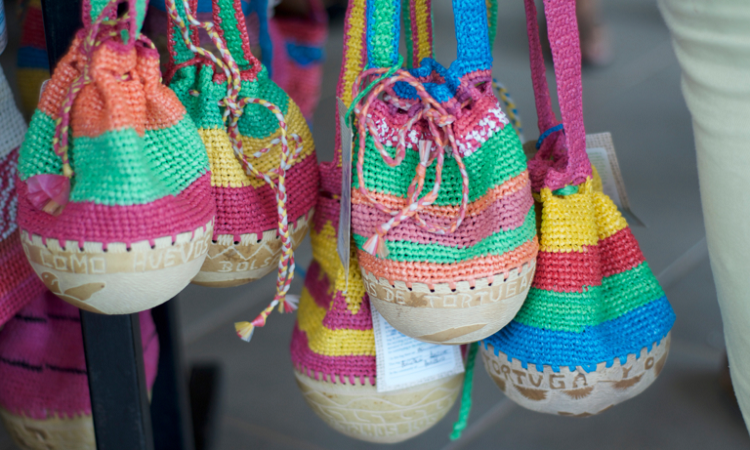Women Empowered by Turtle Conservation Program
Every year thousands of turtles come ashore along the beaches of the south Pacific coast of Nicaragua to lay their eggs. The female turtles return to the beaches on which they were born to lay an average of 100 ping-pong ball shaped eggs into nest holes dug out of the sand. The beaches in this region are of global importance for nesting turtles, including endangered olive ridley turtles, and critically endangered Pacific leatherback and hawksbill turtles.
However the eggs are poached by local communities and the animals are at further risk from plastic pollution on the beaches.
Fauna & Flora International (FFI) started working in the region in 2001, and has since developed a turtle conservation program that includes community ranger patrols, establishing community hatcheries, awareness raising and supporting local people to find sustainable sources of income, for example through the Weaving for Nature initiative.
Weaving for Nature was launched in 2007 and involves the formation of women’s weaving groups. The women collect plastic bags polluting beaches and weave them into products for sale, predominantly to tourists. The aim is to increase the household income of the participating women, thereby decreasing their incentive to poach turtle eggs, and at the same time to reduce the amount of plastic pollution on important turtle nesting beaches, to lower the risk of turtles consuming plastic bags.

Credit: Alam Ramirez / FFI
The initiative has been promoted across a number of communities in the region. These communities were known to be poaching turtle eggs, including many of the weavers and their families.
These sites also had high levels of plastic waste due to the wide use of plastic by a relatively large population attracted to the area by the potential income from egg poaching. This was compounded by a lack of waste disposal facilities, which led to widespread discarding of plastic into the environment.
During the 2017/18 nesting season, 100 percent of the nine leatherback turtle nests were protected from poaching in Chacocente, a globally important area for nesting sea turtles, resulting in the release of 137 leatherback hatchlings to sea, whereas 100 percent of all nests were poached prior to FFI’s intervention.
Anecdotal reports also suggest that plastic pollution levels on and around beaches have reduced. A woman from the weaving group in Astillero, a community near Chacocente, recounted: “I feel that in some way we have contributed towards a change in Astillero, because if you came here six years ago, that field over there would be filled with bags that were being blown into the air towards the sea.”

that matters most
Get the latest maritime news delivered to your inbox daily.
The initiative has helped to channel an average of $100 extra per month back to each weaver, contributing a significant proportion of household income in a region where the average salary is estimated to be $200 per month in a fishing household.
The initiative has improved the social status of the women within their families and the wider community, and they have felt empowered to take more control over their lives. For example, they are starting to use family planning to achieve their desired family size.
